Fuzu
Job search and HR platform

Syndicode’s expert team breathed new life into a B2B job vacancy and career coaching marketplace.
Services
- Web Development
- Legacy code refactoring
- Web design
Technologies
- Ruby on Rails
- Ruby
- ReactJS
- JavaScript
- Python
- Postgresql
- ElasticSearch
- Rspec
- Redis
- Memcached
- Sidekiq
- HTML5
- CSS3
- SCSS
- AWS
- Kubernetes
- GitHub
- GitHub Actions
About the client
A Finland-based startup sought a highly skilled development team with an exceptional command of English, robust communication skills, and comprehensive experience in marketplace and machine learning development. Their main goal was to meet objectives in order to secure a new round of investment.
About the product
Fuzu initially debuted as a B2C platform, matching job seekers with employers using ML-powered recommendation algorithms. This concept quickly gained popularity, presenting chances for the platform to expand into new regions.
However, to achieve this growth, the platform required additional features and solutions for various performance and usability issues.
A collaboration with Syndicode has played a pivotal role in enhancing the platform’s design and functionality, streamlining access to meaningful career opportunities, and helping employers attract the right talent.
View website
Highlights
Highlights
Highlights
Highlights
Highlights
Highlights
Highlights
Highlights
Highlights
Highlights
Highlights
Highlights
Highlights
Highlights
Highlights
Highlights
Highlights
Highlights
Highlights
Highlights
Highlights
Highlights
Highlights
Highlights
Highlights
Highlights
Highlights
Highlights
Highlights
Highlights
Highlights
Highlights
Highlights
Highlights
Highlights
Highlights
Highlights
Highlights
Highlights
Highlights
Highlights
Highlights
Highlights
Highlights
Highlights
Highlights
Highlights
Highlights
Highlights
Highlights
Highlights
Solution delivered
Overhauled Fuzu’s codebase, implemented new features, and enhanced the UI/UX design.
Challenges overcome
Enabled the implementation of advanced features and machine learning.
Business problem solved
Empowered Fuzu to secure new investments and expand into new markets.
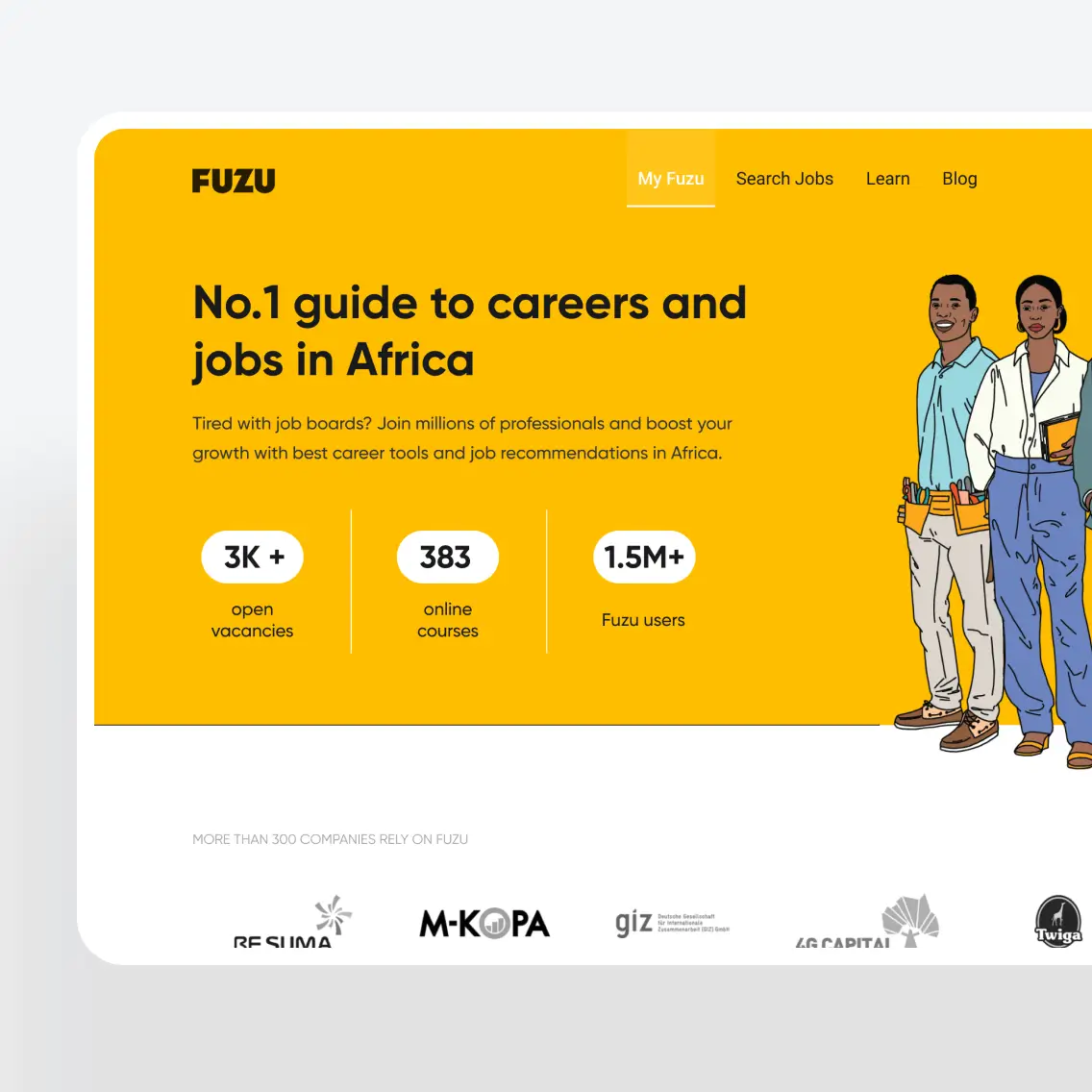
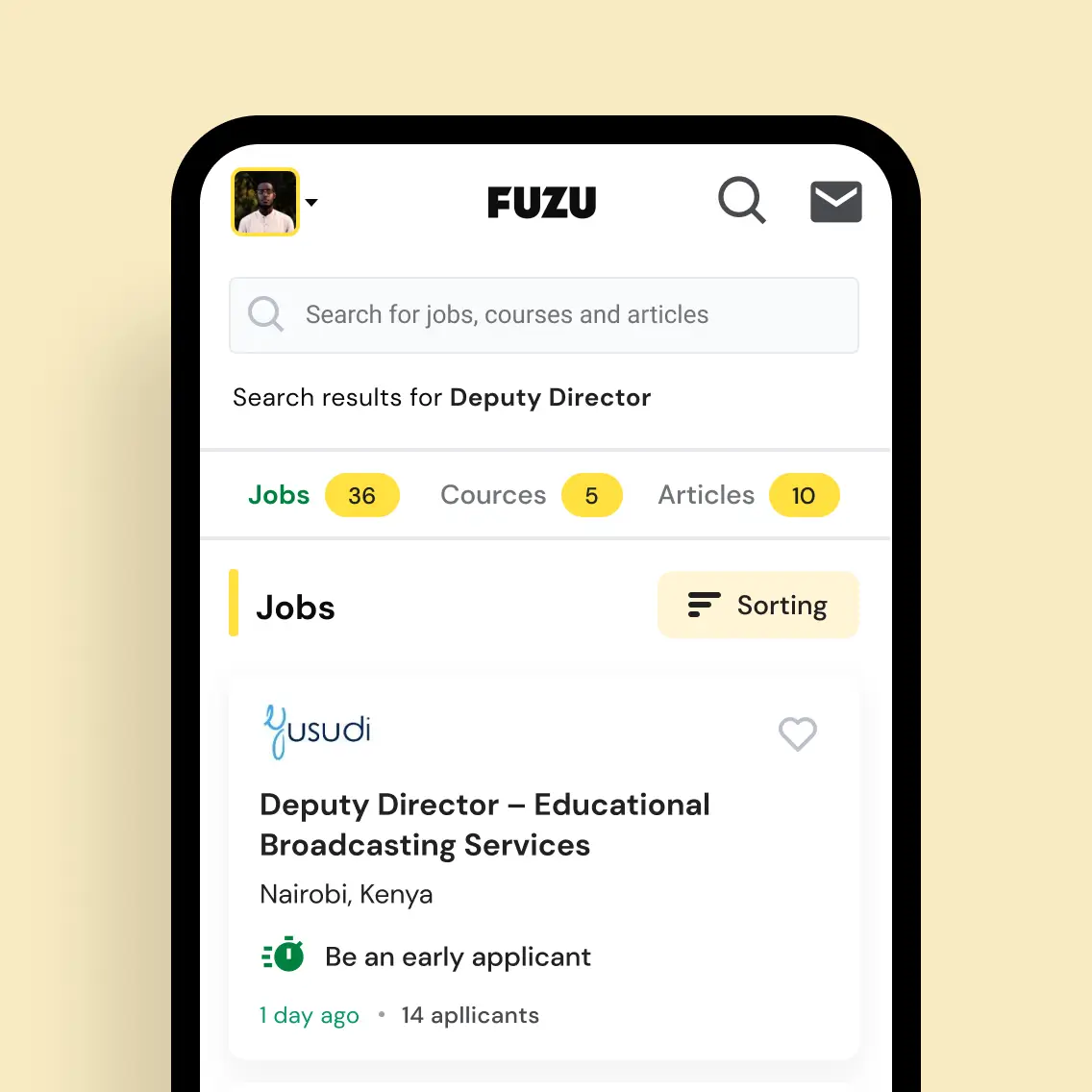


Client’s challenges
Difficulties in implementing new features
The original coding of Fuzu’s platform lacked the necessary functionality to support the addition of new features. Updating and maintaining the system was a complex task, aggravated by significant technical debt.
Moreover, to meet the evolving needs of its audience, the platform’s user experience and interface design required optimization. Before Fuzu could expand into new market segments, the design needed improvements to support new functionalities and to ensure compatibility with mobile devices.
Limited functionality
Before Syndicode stepped in, Fuzu’s platform was limited in essential functions and lacked key features necessary for a comprehensive job search and career development service. Our team greatly expanded the platform’s abilities, allowing it to offer a more comprehensive service to both job seekers and employers.
Unsatisfactory performance and scalability
Initially, the platform’s setup did not support scalability or deliver the expected user experience due to slow loading times and limited visibility on search engines. This setup struggled to accommodate expansion into new markets or handle an increase in the user base.
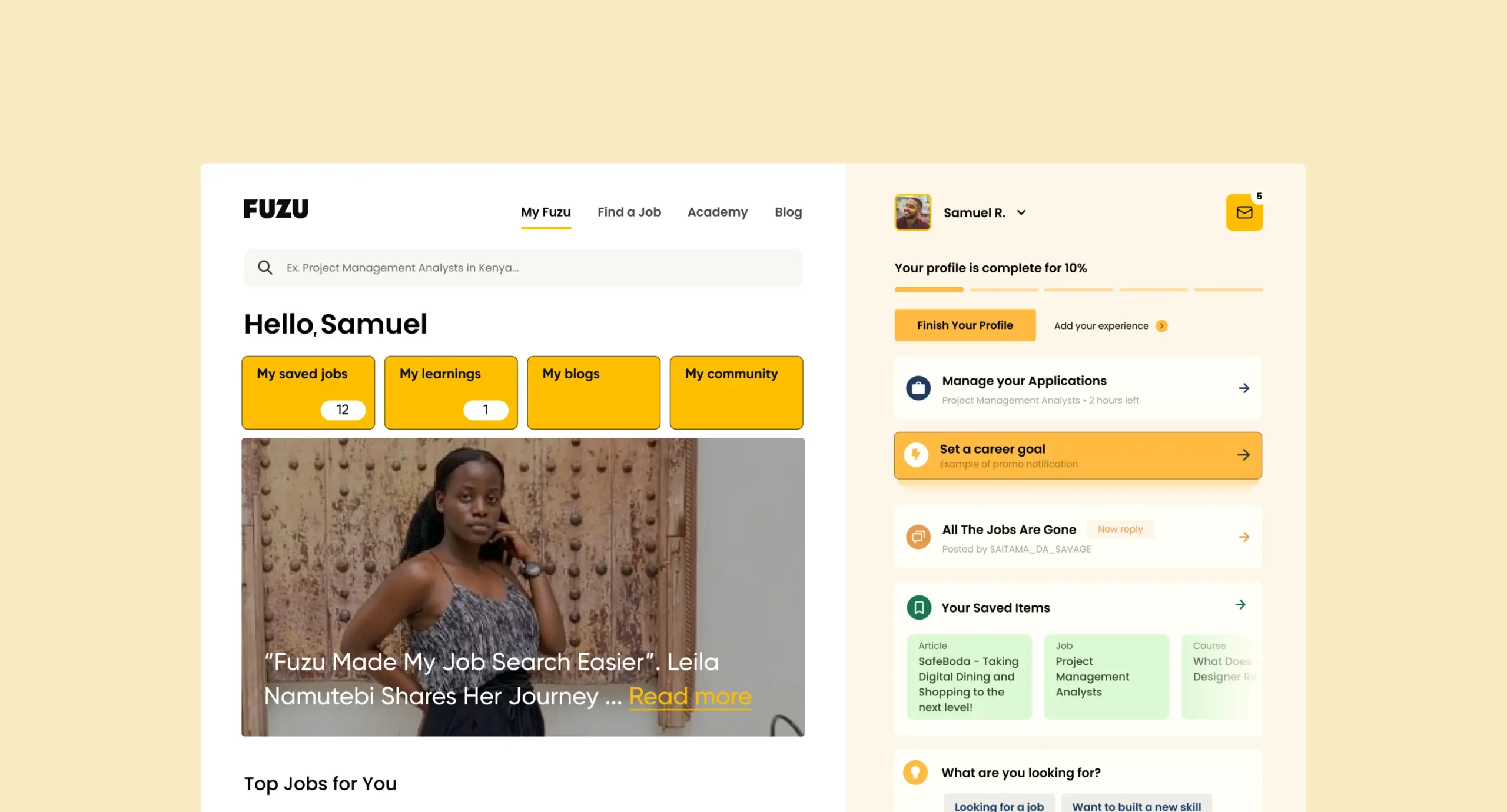
Our solutions
Implementation of new features
Our dedicated team has introduced a variety of new features to the Fuzu platform, including:
- Regional customization: Launching separate platform versions for each target region, each tailored to meet the unique needs of its audience;
- Fuzu Points reward system: Users earn points for activities and purchases on the platform, which they can exchange for discounts on services;
- Enhanced user profiles: For employers, we’ve added tools for custom onboarding flows, collaboration, managing candidate lists, analytics, and integration with the company’s website. For job seekers, there’s a profile builder, an automated CV reader, and personalized content recommendations;
- Advanced job search: A job search tool that allows filtering by location among various other criteria;
- Career coaching: A feature that lets job seekers book sessions with Fuzu employers for career advice and guidance;
- Fuzu Learn marketplace: A selection of courses for users to enhance their skills;
- Customizable CV creator that utilizes user information and data from completed courses on the platform to generate tailor-made CVs. This feature has been recently enhanced with AI-powered technology.
Codebase revamp
Facing the challenge of incorporating a vast array of new features, addressing numerous issues in the original code, and dealing with an outdated technology stack, the Syndicode team opted for a complete overhaul of the platform’s code.
This approach allowed us to establish a clean, optimized architecture designed for the seamless addition of new features and more suited to the current and future needs of the business.
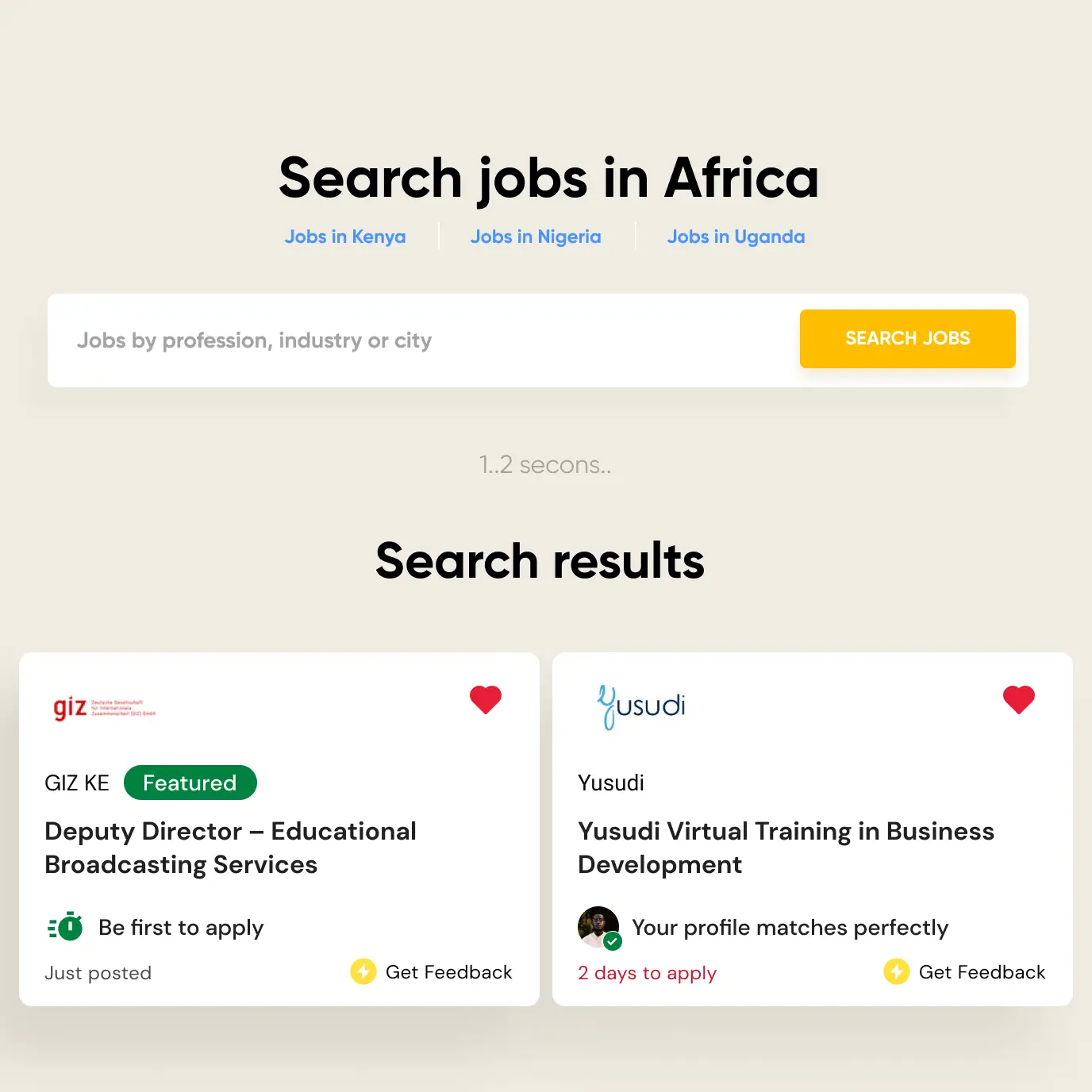

Customizable UI/UX design
To support Fuzu’s vision of expanding the platform’s features, including white-label solutions and custom page creation tools, Syndicode’s designers reinvented the website’s appearance and made it mobile-friendly. They skillfully blended modern design with a layout tailored to the preferences of the typical African user.
Moreover, our team developed a feature that allows the platform to offer a customized look, aligning with the user’s specific goals, whether for job searching or training.
Enhanced website performance and visibility
Through strategic architectural decisions, optimization efforts, and a strict testing routine, our team has achieved optimal website loading speeds and stable, crash-free performance. Additionally, we’ve enhanced SEO by adhering to top web security practices, organizing URLs logically, using semantic page elements, and incorporating structured data.
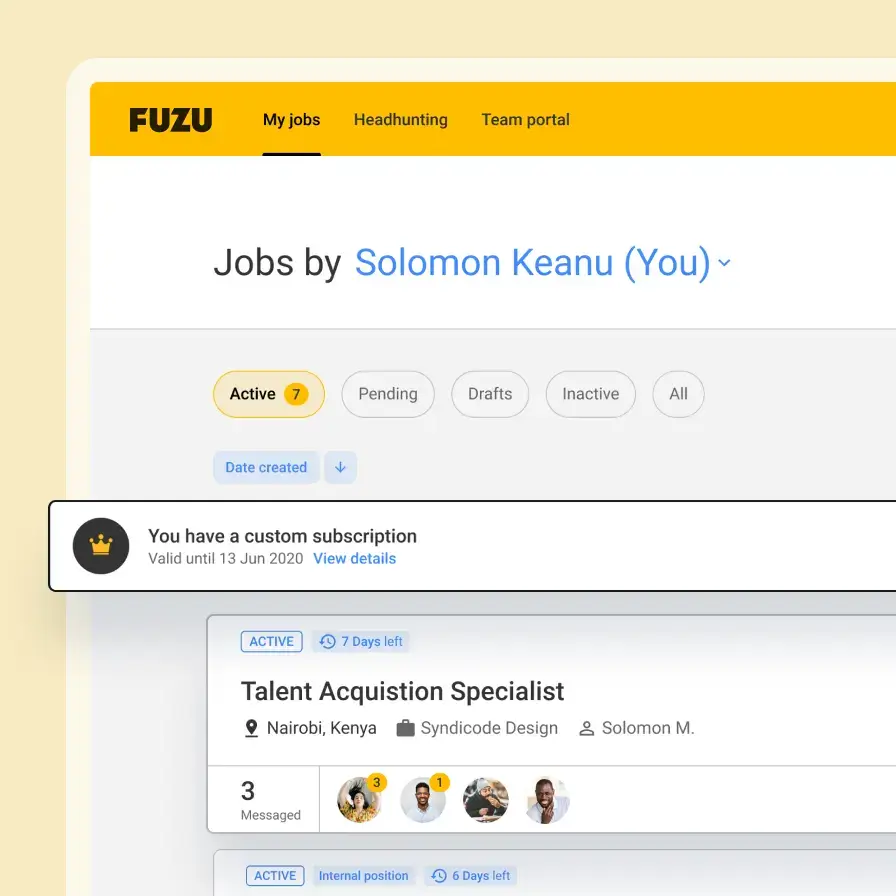

Technical setup
Backend technologies
/ Ruby on Rails was used for efficient handling of business operations, user authentication, data verification, and API endpoint delivery.
/ Python powers the machine learning algorithms that match job seekers with suitable positions on Fuzu.
/ PostgreSQL manages the storage of platform data, including user profiles, job postings, applications, and company details.
/ ElasticSearch facilitates fast searches across numerous job listings and resumes, delivering relevant results and suggestions to users.
/ Rspec was employed for creating automated tests to ensure the Rails application’s quality and dependability.
Caching and background jobs
/ Redis and Memcached boost response times by caching frequently accessed information like job postings or user profiles.
/ Sidekiq manages background tasks such as email dispatch, report generation, or indexing of jobs and resumes.
Frontend technologies
/ ReactJS is used for crafting dynamic and responsive user interfaces.
/ JavaScript works with ReactJS to develop interactive elements like job postings, application forms, and user dashboards.
/ HTML5 structures web platform content.
/ CSS3/SCSS improves the platform’s aesthetics.
Deployment and version control
/ AWS (Cloud Services) hosts the platform, oversees databases, and adjusts resources based on demand.
/ Kubernetes guarantees efficient application operation across various AWS instances.
/ GitHub supports team collaboration among Syndicode developers and client representatives.
/ GitHub Actions simplifies continuous integration and deployment processes.

Result
Result
Result
Result
Result
Result
Result
Result
Result
Result
Result
Result
Result
Result
Result
Result
Result
Result
Result
Result
Result
Result
Result
Result
Result
Result
Result
Result
Result
Result
Result
Result
Result
Result
Result
Result
Result
Result
Result
Result
Result
Result
Result
Result
Result
Result
Result
Result
Result
Result
Result
Since the launch of the reworked platform, Fuzu has garnered significant recognition and achieved notable milestones.
/ The Fuzu platform was included in the top 10 tech startups in East Africa
/ Fuzu was mentioned as one of the most innovative EdTech startups in Sub-Saharan Africa
/ The business secured funding of $6.7M since the platform’s relaunch
/ Fuzu reached 500K active users across Uganda and Kenya.
Our collaboration with Fuzu extends to the present day as we continue to work together to further enhance the platform’s capabilities.
Testimonial
While creating a job marketplace for talented specialists in Africa, we found a great software development partner with talented and dedicated engineers in Syndicode. Their engineers strengthened Fuzu’s team and enabled the service to scale and work smoothly for half a million job seekers and employers.
Next project
Evrlearn
Lifelong learning hub

